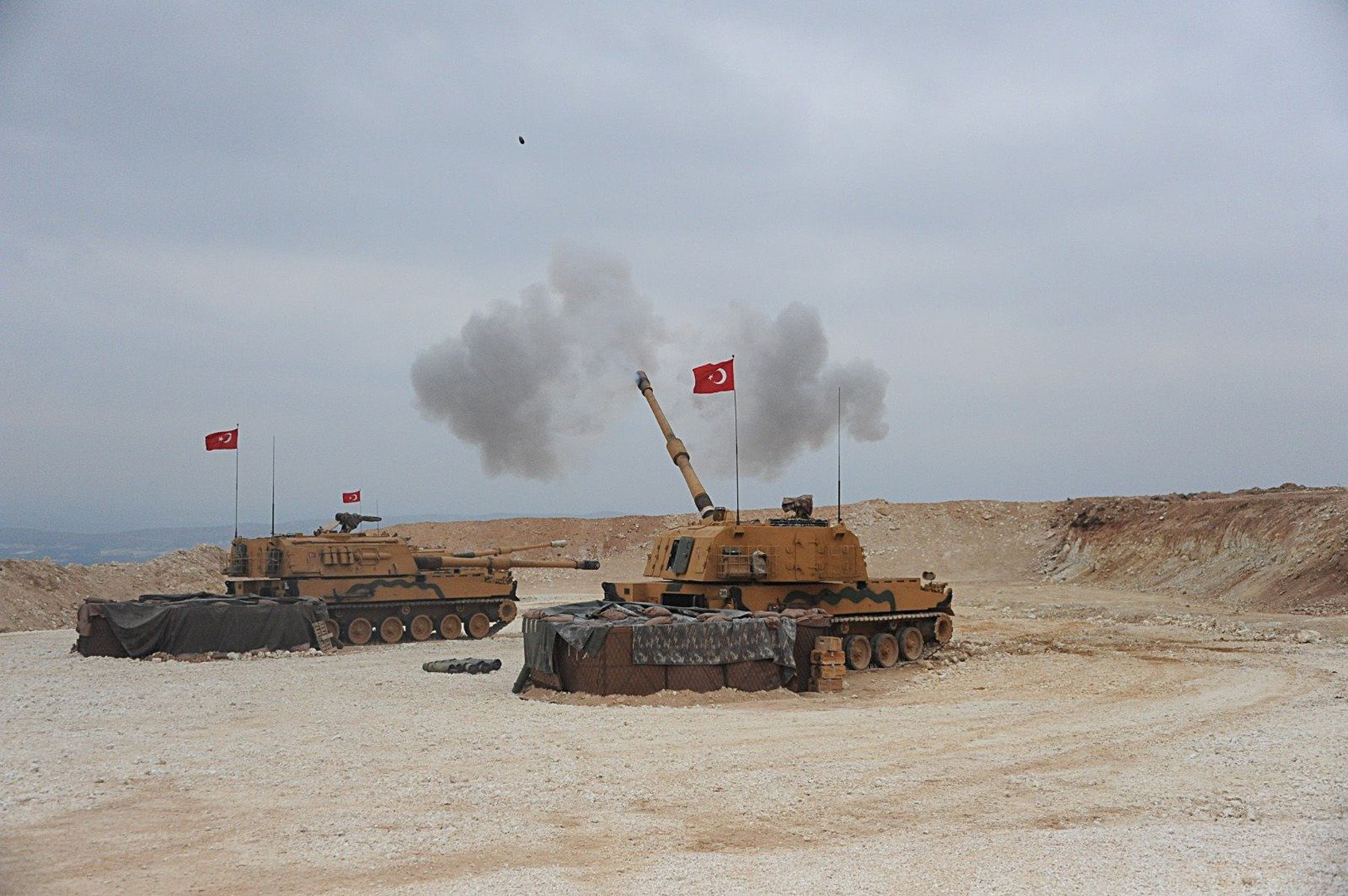Turkish Military Operation Olive Branch in Syria

What’s is Olive Branch’s aim?
The operation’s military short-term goal is to create a Turkish “security zone” in Afrin—one of two Kurdish enclaves in northern Syria—reaching 30 km into Syria. The longer-term goal is probably to push the YPG east of the Euphrates. Olive Branch was planned to prevent Kurdish cantons in northern Syria from joining and forming a united autonomous area. The operation’s political aim is to show the U.S. and Russia that Turkey is determined to protect its vital interests. The Turks want to influence the superpowers’ strategic calculations in Syria and prompt them to restrain their cooperation with the YPG and its political arm, the Democratic Union Party. Moreover, the operation will serve as a tool for Turkish authorities to keep its nationalist electorate mobilised.
Will the operation “combat terrorism” in Syria and speed the end of war in the country?
The Turkish authorities are presenting the offensive in Syria as an operation against 8,000 “terrorists,” the members of the YPG, which in fact combats jihadists and promotes socialist and equality slogans. The group has successfully defended the territories under its control against jihadist groups (including ISIS) and Bashar al-Assad’s regime forces. Operation Olive Branch could push the Kurds into a closer alliance with Assad and, as a result, strengthen him. The Turkish authorities, although officially against Assad, would prefer Afrin come under the control of the regime in Damascus rather than the Kurds. There were even reports that the Turks suggested to the Kurds that erecting Syrian flags on office buildings would protect them from the offensive. Jihadist organisations may also benefit from the chaos around the Kurdish-Turkish clash.
What is the reaction to Olive Branch from countries in the region and elsewhere?
Their reaction does not correspond to the usual division of allies and opponents of Turkey and is predominantly negative against the authorities in Ankara. The Foreign Ministry of Iran, which partly cooperates with Turkey on Syrian issues, called on the Turkish military to end the bombardment of Afrin and withdraw from Syria. According to Iran, the Turkish operation will only strengthen actual terrorist organisations. The government of Egypt spoke in an even harsher tone, identifying the operation as a violation of Syrian sovereignty. Only the Qatari press has been more favourable to Turkey. The country’s isolation over its Syria operation deepened with negative reactions from the U.S. and the EU, and the likelihood the UN Security Council will put the issue on its agenda, all of which may prompt the Turkish authorities to end its action sooner rather than later.
How has Russia reacted?
Russia’s Ministry of Foreign Affairs voiced concern about Turkey’s operation; however, the Ministry of Defence claimed that the crisis erupted because of “the Pentagon’s uncontrolled deliveries of modern weaponry to the pro-U.S. militants in the north of Syria.” That shows that the Russians will try to play on the operation to stoke up the tensions between NATO members Turkey and the U.S. Furthermore, two events prove that the first phase of Olive Branch came with at least an understanding with Russia: it withdrew some Russian soldiers located in Afrin beforehand and it opened Syrian airspace to Turkish fighter jets. Presumably, preserving its stance will depend on Turkey’s concessions in other areas, such as its approach to the Assad regime and its willingness to diminish support for the Syrian opposition.
How might it affect NATO and the EU?
There is a serious risk that the tensions between Turkey and the U.S. will escalate, thus harming Alliance cohesion, especially if the Turkish offensive expands to Manbij, where the U.S. supports the YPG. A very unfavourable scenario for their relations would appear if weapons the Americans have given to the YPG and other groups to speed up the fight against ISIS in Syria are used by the terrorist Kurdistan Workers’ Party (PKK) on Turkish territory. Thus, NATO would be put in a difficult situation in which one of its allies could accuse another of supporting terrorism. The biggest threat for EU countries is linked to an escalation of the Turkish-Kurdish conflict. It is very probable that the tensions between the Turks and Kurds could project to European territory through the Turkish diaspora.




